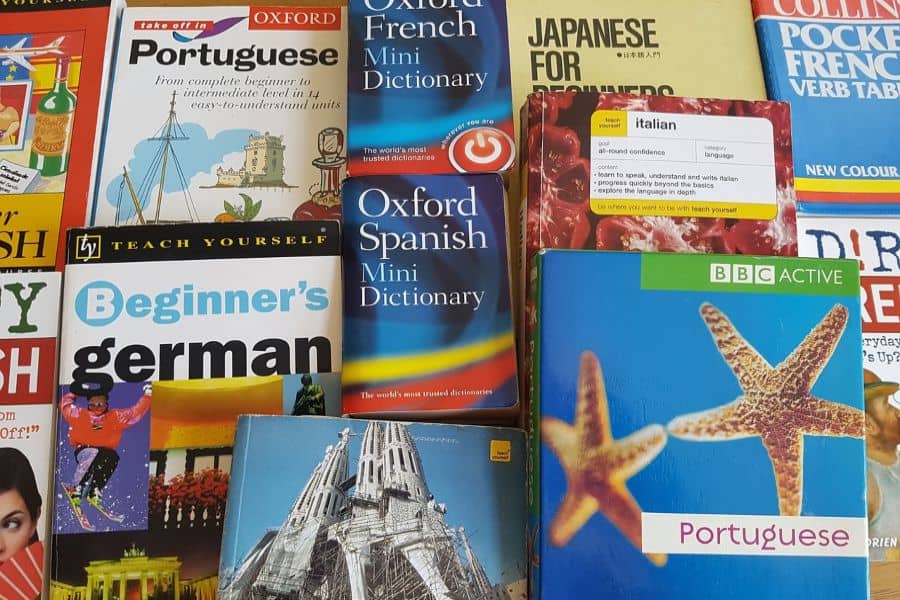
Why are French language skills valuable in the professional world?
Think of language as a universal key; one that can unlock doors in various industries. French, in particular, is a key that opens many doors.
When you’re bilingual or multilingual, you become a versatile asset. French is spoken in more than 30 countries and is one of the official languages of international organizations like the United Nations. That means if you speak French, you can communicate with a vast and diverse audience. It’s not just a skill; it’s a passport to opportunities.
Why Is The Demand For French-Speaking Professionals On The Rise?
Here’s the kicker: the world is becoming more interconnected. Businesses and organizations are constantly expanding their reach across borders. So, they’re on the lookout for professionals who can bridge language gaps. If you can speak French, you’re a bridge builder, and the demand for such professionals is ever-growing.
Identifying Your Career Goals
Before diving headfirst into learning French as a second language, take a step back to evaluate your career ambitions. What’s the big picture? Whether you’re an aspiring diplomat or a future fashion mogul, understanding your career goals is the first step.
Consider how French aligns with these ambitions. For instance, if you’re eyeing a role at the United Nations, French is a must. If your heart’s set on managing a five-star hotel in Paris, you’ll need French to provide the best guest experience.
French isn’t a one-size-fits-all language. It serves as a golden key for many career doors. Do some research to pinpoint job roles and industries where French is indispensable:
- United Nations: If you aspire to work in international diplomacy, French is one of the official languages.
- Business and Commerce: In global business, being able to converse with French-speaking clients or partners is invaluable.
- Tourism and Hospitality: In this sector, speaking French enhances your ability to provide top-notch service to guests from French-speaking countries.
- Fashion and Design: Paris is the fashion capital. Speaking French opens doors to opportunities in this glamorous industry.
- Culinary Arts: Learning the language of gourmet cuisine can give you a leg up in the culinary world.
Learning French isn’t a one-size-fits-all process either. Tailoring your language learning to your career goals is like customizing a suit—it fits perfectly.
If you’re aiming for a career in diplomacy, focus on formal French and diplomatic jargon. If you want to excel in the fashion industry, get acquainted with fashion-related vocabulary. The more you align your language learning with your career path, the more effective and efficient it becomes.
Learning Methods and Resources
Now that you’ve got your career goals in focus, it’s time to learn the ‘how.’ How do you start your French journey?
- Classes: Traditional classroom settings are perfect if you prefer structured learning. Look for local language schools or community college classes.
- Online Courses: The digital era offers an array of online French courses, often at your own pace. Websites like Duolingo and Babbel are great for beginners.
- Self-Study: If you’re self-disciplined, grab some textbooks, workbooks, and immerse yourself. This method offers flexibility.
Learning has never been more accessible. Thanks to technology, you’ve got a wealth of resources at your fingertips:
- Apps: Download language learning apps like Rosetta Stone, Memrise, or FluentU. They’re like pocket tutors.
- Websites: Websites like BBC Languages and Learn French with Alexa offer free lessons, exercises, and pronunciation guides.
- Podcasts: Listen to French podcasts while commuting or working out. It’s a fun way to enhance your listening skills.
If you’re looking for a more personalized approach, consider hiring a private tutor. They can tailor the learning experience to your specific needs. Additionally, immersion courses, where you study French in a French-speaking environment, can fast-track your fluency.
Setting Realistic Expectations
When embarking on your journey to learn French, it’s crucial to set realistic goals. Think of language learning like a marathon, not a sprint. Your goals should be specific, measurable, and attainable.
For instance, set a goal to hold a basic conversation in French within three months. As you reach this milestone, you’ll boost your confidence and motivation. Setting achievable goals is the key to staying on track.
Becoming proficient in French doesn’t happen overnight. Mastery takes time and dedication. On average, it might take a year or more of consistent practice to achieve proficiency, but remember that it varies from person to person.
Think of it this way: Learning a language is like constructing a puzzle. With each piece you put in place, your proficiency grows. Be patient with yourself and understand that progress comes in increments, not leaps.
Consistency is the name of the game when learning a new language. Dedicate a set amount of time each day or week to practice. It’s like watering a plant; the more consistent you are, the more your language skills will flourish.
Remember, language learning is a journey, not a destination. Don’t be disheartened by occasional stumbles or plateaus; these are part of the process. The key is to keep going, keep practicing, and remain patient.
Building a Learning Plan
Now that you’ve set your goals and understand the commitment required, it’s time to create a roadmap. A structured learning plan will keep you on the right path.
Start by setting a regular study schedule. Whether it’s 30 minutes a day or a few hours a week, consistency is key. Plan what topics you’ll cover each week and set specific milestones to track your progress.
Milestones act as signposts on your language learning journey. As you achieve them, you gain a sense of accomplishment and motivation to push forward. Consider milestones like completing a beginner’s course, holding your first conversation, or even writing a short paragraph in French.
Tracking your progress can be as simple as keeping a journal, marking off completed lessons, or using a language learning app that monitors your advancement. The satisfaction of seeing your growth is a powerful motivator.
Learning a language is an exciting adventure, but it can also be challenging. To stay motivated, find ways to make it enjoyable. Watch French movies, listen to French music, or read books in French that interest you. Connect with the culture, as it can breathe life into your studies.
Additionally, join online forums or local language exchange groups to interact with fellow learners and native speakers. Learning with a community can make the journey more enjoyable.
Immersion and Cultural Integration
To truly master the French language and unlock its potential in your career, immersion is your secret weapon. Immersion means surrounding yourself with the language and culture, and it’s incredibly effective.
Think of it this way: the more you swim in the language pool, the stronger you become. Whether you’re learning in a classroom or through apps, supplementing it with real-world exposure to French is essential.
To immerse yourself in French, dive into the rich world of French culture. Start with French movies and TV shows with subtitles, then gradually remove the training wheels. This helps you adapt to the rhythm and pronunciation of the language.
Reading French literature is another fantastic way to enhance your language skills. Begin with simpler works and work your way up to more complex texts. It’s like building your language muscles.
Engaging with native speakers is the ultimate immersion. Seek out language exchange partners, join conversation groups, or participate in online language forums. Speaking with native speakers exposes you to real-life language nuances and expressions.
For the full immersion experience, consider studying or working in French-speaking regions. It’s like taking a deep dive into the language and culture.
Studying abroad in a French-speaking country offers a 24/7 language and cultural learning experience. If work allows, consider job opportunities in such regions. The practical application of your language skills accelerates your proficiency.
Networking and Professional Development
Networking is the cornerstone of career development, and it’s no different when learning a new language. Connecting with French-speaking professionals can open doors you never knew existed.
Whether you’re on the path to diplomacy or diving into the world of international business, having connections within the French-speaking community is invaluable. They can provide insights, mentorship, and even job opportunities.
To expand your network, attend language-related events, workshops, and conferences. These gatherings are treasure troves of like-minded individuals who share your passion for the language. Here are some tips:
- Actively participate in discussions and mingle with fellow attendees.
- Exchange contact information with those you meet to nurture professional relationships.
- Stay updated on future events through online forums and organizations.
For those venturing into the world of international business or trade, organizations like the Chamber of Commerce can be career catalysts. They often host events and activities that bring together professionals from diverse backgrounds.
Joining such organizations not only provides networking opportunities but also exposes you to the latest industry trends and insights. These connections can be invaluable for career growth.
Certifications and Recognitions
1. The Significance of Language Certifications like DELF or DALF
Language certifications hold the power to validate your proficiency in French and can significantly impact your career prospects. Two notable certifications, DELF (Diplôme d’Études en Langue Française) and DALF (Diplôme Approfondi de Langue Française), are widely recognized and respected.
DELF is divided into several levels, ranging from A1 (beginner) to B2 (intermediate). DALF, on the other hand, consists of C1 (advanced) and C2 (mastery). Achieving these certifications demonstrates your ability to understand, speak, read, and write in French at varying levels of fluency.
2. Information on Exams, Costs, and Preparation Strategies
DELF and DALF exams evaluate your language skills through written and oral tests, and each level has a specific focus. Here’s what you should know:
- Exam Structure: DELF and DALF tests assess your listening, reading, writing, and speaking abilities. The C1 and C2 levels of DALF include a research project or dissertation.
- Costs: The fees for these exams can vary depending on your location and the level you’re taking. Expect to invest anywhere from $100 to $250 per exam.
- Preparation Strategies: Preparation is crucial. Enroll in preparatory courses or workshops designed for these exams. Use official practice materials provided by the exam boards. Practice regularly, especially for the speaking and writing components. Seek feedback from experienced teachers or tutors to fine-tune your skills.
3. How Certifications Can Boost Career Opportunities and Salaries
Earning DELF or DALF certifications can be a career game-changer. Here’s how:
- Enhanced Employability: Many employers value language certifications as they validate your skills. In professions where French is a requirement, having a DELF or DALF certificate can set you apart from other candidates.
- Career Advancement: In some cases, certifications can open doors to higher positions or roles that require language proficiency. For instance, in diplomacy or international organizations, these certifications are often mandatory.
- Higher Salaries: Bilingual or multilingual professionals often command higher salaries. A DELF or DALF certification can be the factor that justifies a higher pay grade.
- Global Opportunities: With these certifications, you’re well-prepared to work in French-speaking countries and international organizations. Your horizons expand exponentially, and you can explore career opportunities globally.
Conclusion
So, our parting advice is simple: Take that first step. Sign up for a course, download a language-learning app, or join a language exchange group. Commit to daily practice and gradual progress. Remember that language learning is an adventure, one filled with exciting milestones and cultural discoveries.
As you venture into the world of French language learning, keep your career goals in sight. Align your studies with your ambitions and strive for fluency. The road ahead may be long, but it’s paved with opportunity.
Don’t delay; your journey to career success begins with a single word, a phrase, or a sentence in French. Bon voyage on your path to becoming a French-speaking professional. The world is waiting for you, and your journey starts today.








